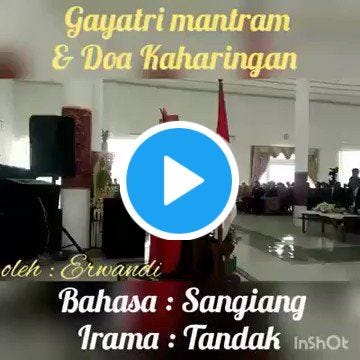Welcome to Eternal Path Musings, a weekly newsletter for the modern and curious Hindu, featuring highlights around religious texts, practice, history, politics, people, and ways to better our engagement and personal progress.
To read previous issues, click this link.
Forward widely and have your friends, family, and congregants sign up here!
Twitter Highlights - Three Accounts to Follow
True Indology (@TIinexile) - Posts lots of material from primary and secondary sources on Hinduism and Indian history
Porbotialora (@porbotialora) - Posts on Hinduism in Northeast Asia and Southeast Asia
Bharata Punarutthana (@punarutthana) - Posts on Hindu temples
Film Highlight - The Need: Exodus and Exile
“The Need: Exodus and Exile” is a powerful short firm on Kashmiri Pandits that has been winning awards across film festivals in India recently. Watch it below and share the film widely!
Convert Highlight - Raskhan
Syed Ibrahim Khan (Pashto: سید ابراهیم خان) also known as Raskhan, was a poet of Pashtun origin who became a devotee of Krishna during the 1600s under the influence of the Hindu guru Vittalnath.
He was a prolific writer both in Khariboli, Braj Bhas and Persian languages, and even translated the Shrimad Bhagavatam into Persian. The vast majority of his poetry is focused on Krishna-Bhakti with events and imagery from Krishna’s life forming the bulk of his references. His two most famous works are the Sujan Raskhan and the Prema Vatika, the latter a collection of couplets in the language Braj Bhasha.
His conversion from Islam to Vaishnavite Hinduism rocked the elite Muslim community, who urged the Mughal emperor to kill him for apostasy. His response was:
“kahA karai rasakhAna ko ko.U chugala-labAra | jo pai rAkhana-hAra hai mAkhana-chAkhana-hAra”
What harm can these petitioners bring to Raskhan? For his protector is now none other than Krishna himself
Aesthetic Highlight: - Dayak Gayatri Mantra
The Dayak Hindus, especially of the Ngaju subgroup, of Kalimantan, Indonesia (on the island of Borneo) use a special language which they call basa sangiang, generally used for praise songs and rituals with heavy Sanskrit influence. Below is a video of the Dayak Hindus version of the Gayatri Mantra. (via Porbotialora - click the tweet image for the video).



